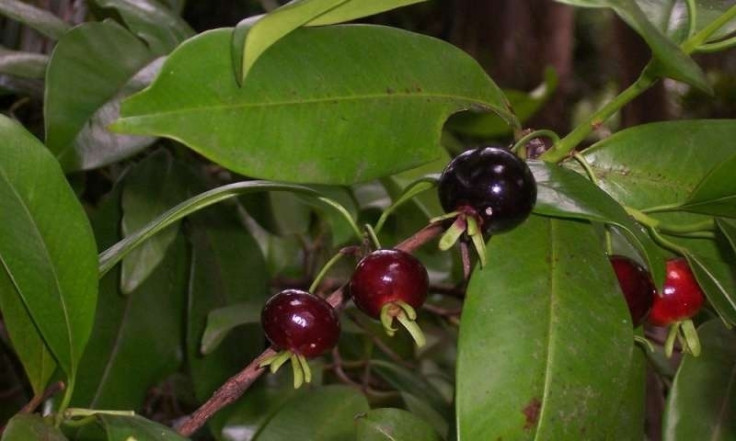Rare fruits of Brazil's Atlantic Forest set to become the new superfoods
Antioxidants neutralise free radicals - unstable molecules which contribute to aging and various diseases.

Four fruits native to the Atlantic Forest – which extends from the coast of Brazil to Paraguay and Argentina - have been found to contain powerful antioxidant and anti-inflammatory agents, according to a new study conducted by Brazilian researchers.
These fruits are packed full of vitamins and nutrients, in addition to the antioxidants which combat free radicals – unstable, highly reactive atoms that can cause damage to the cells that contribute to aging and various diseases, including cancer.
The four fruits are known as araçá-piranga (E. leitonii), cereja-do-rio-grande (E. involucrata), grumixama (E. brasiliensis) e ubajaí (E. myrcianthes) and can all be found in the Brazilian part of the forest.
"We knew they could contain a large number of antioxidants, just like the well-known berries of the US and Europe, such as the blueberries, blackberries, and strawberries, with which scientists are so familiar," said Severino Matias Alencar of São Paulo's Luiz de Queiroz Agricultural College (ESALQ-USP). "Our native berries proved [to be] even better."
A healthy, balanced diet is essential in combating free radicals. While our body produces substances that eliminate them, this process can be hindered by age, stress or poor food intake.
Eating fruits and vegetables containing antioxidative agents, such as flavonoids or anthocyanins can improve health, slowing the aging process, as well reducing the risk of diseases caused by chronic inflammation, such as diabetes, cancer, arthritis, obesity and Alzheimer's.
The four fruit species that were studied are increasingly rare so samples were supplied by two small farms in the São Paulo State.
Pedro Rosalen, from the University of Odontology in Piracicaba (FOP), said that Brazil has "an enormous number of native fruit trees with bioactive compounds that could benefit people's health. They should be studied."
Alencar adds that it is only a matter of time until these fruits are marketed as fashionable superfoods.
"There wasn't much scientific knowledge about the properties of these native fruits. The idea now, with the results of our study, is for them to be grown by family farmers, increase production scale and be taken up by retailers. Who knows? They could be the next açaí," he said, referring to the commercial success of the Amazonian berry Euterpe oleracea, which contains large quantities of antioxidants. Brazil exports açaí puree to several countries.
"Brazilian native fruits are unmatched in their variety, but a poorly explored resource for the development of food and pharmaceutical products," the researchers write in the study, published in the journal PLOS ONE.
"The considerable biodiversity of the Brazilian ecosystem represents a valuable and unexploited source of foods, extracts, and compounds with the potential to improve human health and wellness."
Brazil has the most diverse flora in the world, offering unprecedented opportunities for the discovery of edible plants, extracts and compounds which have the potential to improve human health and treat disease, according to the study.





